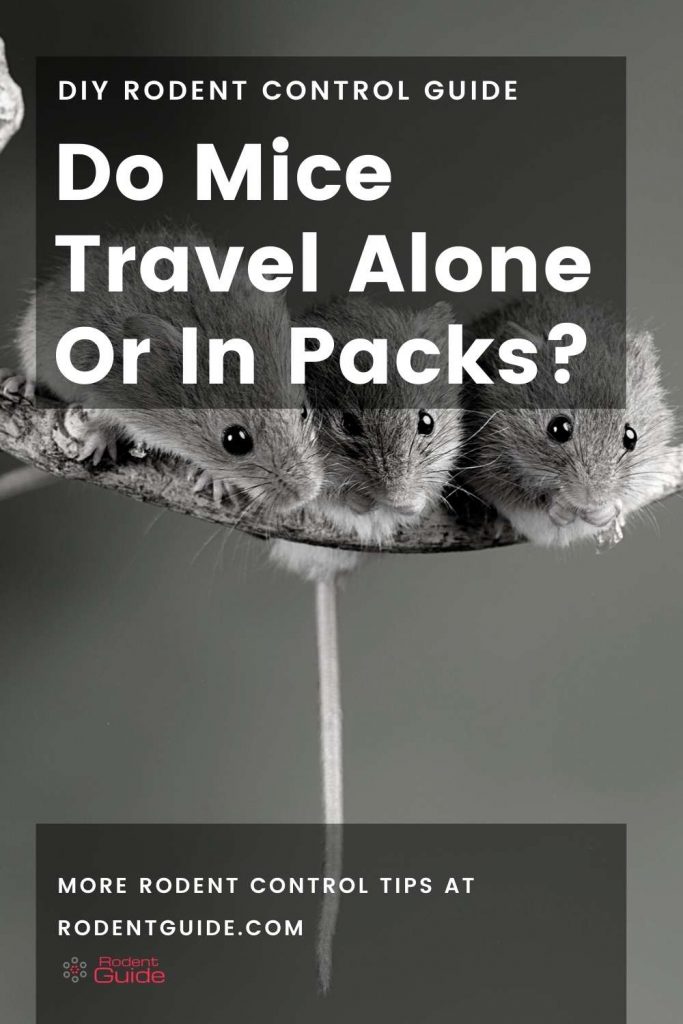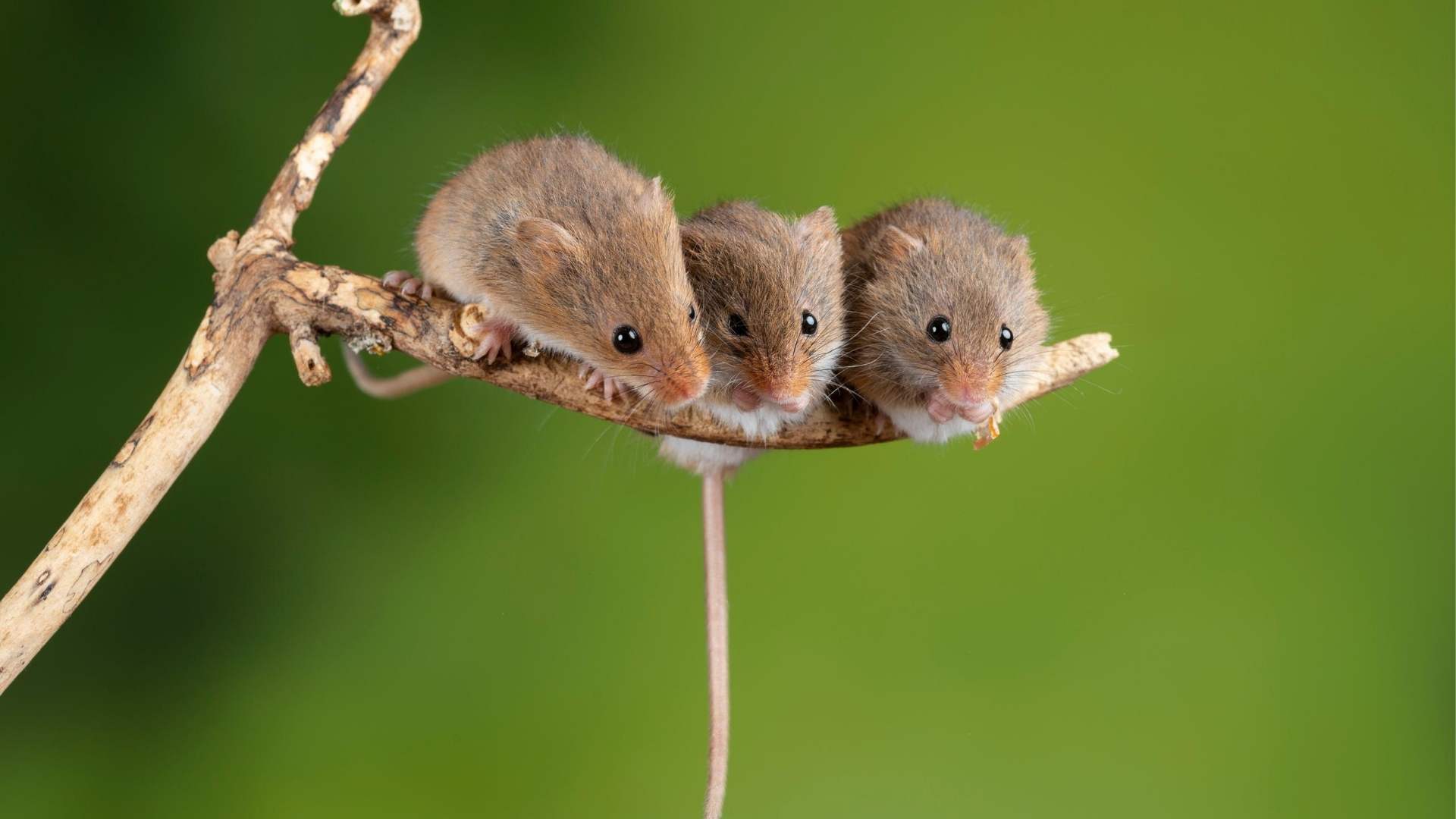No homeowner wants to live in a home infested by mice, right?
But if you are to eliminate mice from your house and ensure that they will not come back in the foreseeable future, you will have to take it upon yourself to understand how mice live. For instance, do mice travel alone or in packs?
You need to know your enemy!
As you are the hunter, in this case, you will have to take time to understand your prey properly. Learn their habits, and learn how they operate.
Learning whether or not a mouse is alone or has other mice traveling with it will enhance your chances of successfully catching them.
In this post, we are going to take a look and answer the question: Do mice travel alone, or in packs?
Do Mice Travel Alone or in Packs?

Whenever you come across a mouse on the move, the chances are that there are more mice around. As a homeowner, this is one of those sayings that you ought to heed.
House mice will generally live together in clusters and search for nesting materials and food either as a pair or in larger collections.
Mice are highly sociable creatures that help explain why they live together as a colony. It also means that if you detect a mouse in your residence, then be prepared to confront more mice due to their fast breeding pace. Also, mice leave behind a trail when traveling to help them communicate with other colonies.
Do mice travel alone? Yes – they can travel alone.
Do Mice Live Alone or in Packs?
Cartoons have often depicted mice as rodents living alone in little homes. Homes are furnished with wall pictures, throw rugs and mouse-sized chairs.
Tom and Jerry are to blame for this one!
In reality, mice don’t have any décor in their nesting sites! Nor any tiny furniture, as cute as it could be for one to try and imagine this.
But most importantly, mice don’t reside alone. While many mice will opt to keep to themselves while they are out in open fields, the fact is that both house and outdoor mice prefer to live in a group. Additionally, mice tend to breed more regularly compared to other animals. Female mice may give birth to litters of 6-8 baby mice. Also, on average, up to ten times in any given year!
As a result, if you come across a mouse scurrying around in your house, you can rest assured that there are other mice close-by.
How Many Mice Are in A Pack?
Like rats, squirrels, and raccoons, mice are known to build nests to deliver and raise their young ones. And staying true to their name, the house mice are known for creating nests inside human houses. This means that if you have heard telltale scratching behind the walls or have noticed droppings in or around your home, then it’s time to conduct an examination to determine where the mice are hiding.
As mentioned earlier, mice breed regularly and at a very rapid pace. Once they have started breeding, they will not stop.
Your average mouse nest is likely home to between twelve and twenty-four mice. Imagine that!
The mice will nest close to a food source, and a mouse will also be set up in a warm, safe area.
Their ideal nesting site will also be well protected and close to an area where they can source for food items.
Will A Pack of Mice Attract Other Mice?
Mice can also stay in contact with other mice through pheromones. These are chemicals excreted through their fur and trigger a reply in other animals that belong to the same species.
Once they are inside your house, the mice will leave a trail of these pheromones. This is how they communicate with other mice.
Mice use pheromones for many different responses!
Once you have eliminated the current clusters present in your house, it is essential to take precautions that will help you ensure that a new collection will not take up residence.
It would be best to clean your home thoroughly to get the scent off the floors and walls.
Frequently Asked Questions

Do Mice Travel in Pairs or Groups?
Whenever you come across a mouse scampering around your home, chances are high that there are a few of his buddies hiding not too far away from where you have seen it. Generally speaking, mice are not heavy-duty travelers. This means that when the time comes for them to search for food, they will not be traveling on their own.
Can You Just Have One Mouse in Your House?
Mice are rodents that don’t like to do things on their own. It’s the reason why they choose to form long-lasting bonds with their favorite mice. During the winter, they will come together and nestle to get the warmth they need to survive and remain warm. They also relax together when they are not outside foraging for food.
The mice also play together. According to rodent experts, mice tend to use high-pitched noises whenever they want to communicate with other mice in their vicinity. Their communication also involves the use of touch and scent. While mice are all about friendship when they are in their assemblies, the opposite applies when they are around humans.
Do Field Mice Come in Packs?
As mentioned earlier, mice like to live in groups. This is something that holds for both house and field mice. If you spot a mouse out in the open field, then the probability is that there is a collection of other mice near the area where you have seen the first one.
Additionally, mice prefer to stick to a small area and can only travel as far as twenty-five feet in search of food. When food becomes scarce in the fields, they may travel further, although this is not very common.
Conclusion
It is a simple question: do mice travel alone or in packs? But the answer is not a simple one.
If you see 1 mouse, there might be more. But then again, there might not be. Mice are very social animals, so they are more likely to travel in packs.
Let’s not forget that mice are wicked-fast breeders, so they will also live and travel with their families.
If you notice a mouse problem in your home, you must work on a detailed mouse control process to eliminate them!
Ultimately, do mice travel alone? Sometimes! Do mice travel in packs? Sometimes!
Good luck!








